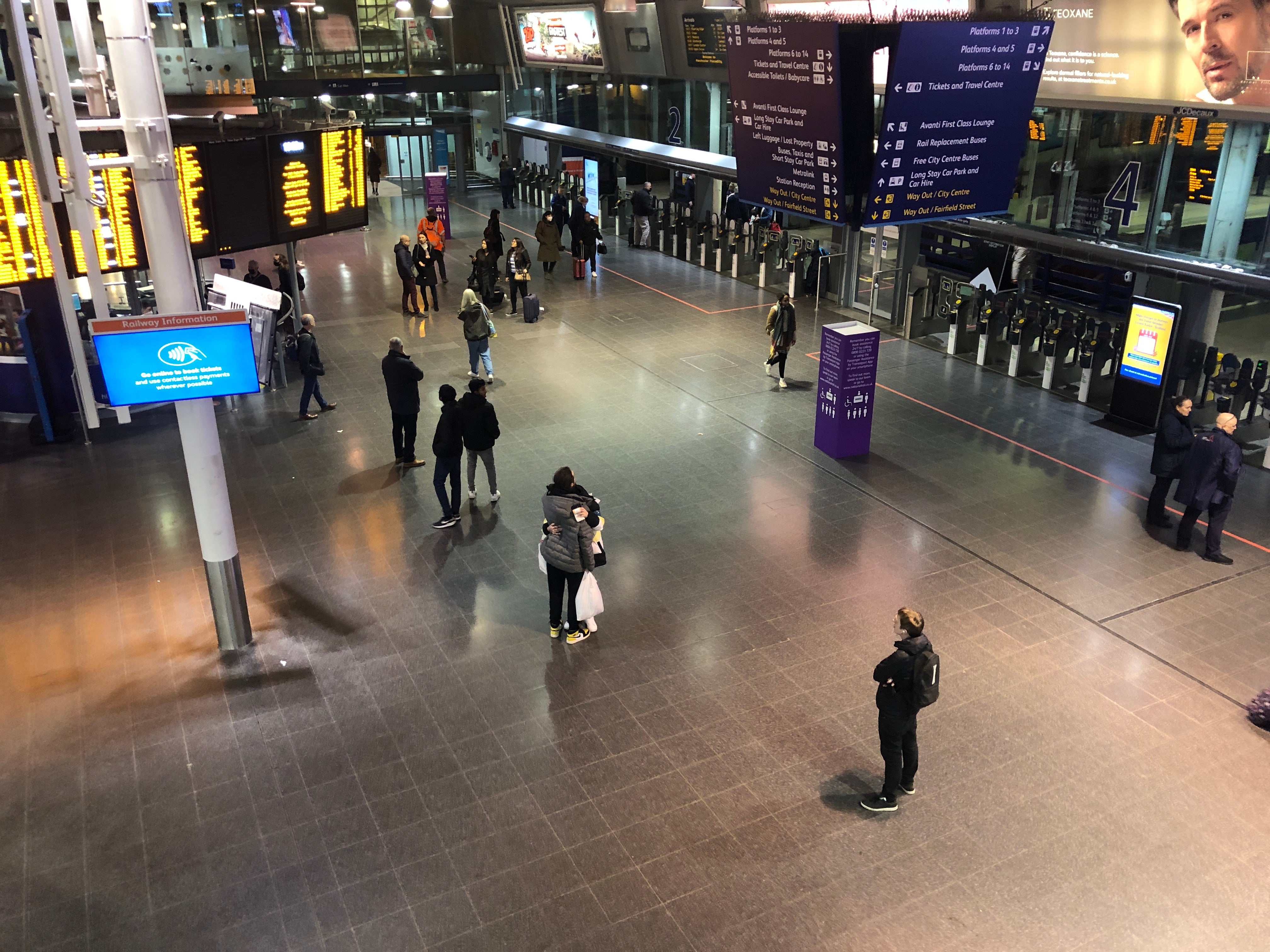When will rail passengers get a return to normal service?
Train Talk: Many rail firms are still on an ‘Omicron’ timetable

Remember Omicron? Given the tragic events unfolding in Ukraine, the coronavirus variant that once caused enough alarm to trigger an overnight travel ban in South Africa has retreated from our consciousnesses.
Except on the railways of Britain, it seems. Many train operators are still running “Omicron timetables”.
Govia, which runs the busiest franchise of all, in southeast England, warns: “A reduced service remains in operation from Monday to Friday on Southern, Thameslink and Great Northern routes until further notice. The Gatwick Express service remains suspended.”
The reason? “This is following a period of significant staff absence due to Covid.”
Transport for Wales also tells passengers: “Our rail services are running on a reduced timetable”. From what I can see, it is the same “emergency rail timetable” that took effect from the new year.
Train firms exist to serve the travelling public, and these depleted schedules were introduced as an honest effort to deliver some certainty to passengers: better to assume a significant proportion of the workforce will be unable to work, and plan a manageable operation.
All commendable – except we are now well into March, and the reduced services are now acting as a brake on passenger numbers. Remember that for most of the past two years, taxpayers have been pumping £1m per hour into running largely empty trains.
If you can remember back to the days of “tier three”, you might recall that one weekend in October 2020 Avanti West Coast offered 75,000 seats on 150 trains between London Euston and Manchester Piccadilly.
At the time, leisure travel in and out of the Manchester area was banned and most of those seats should have been empty. Yet every 20 minutes, trains set off doggedly from each end of the line according to the pre-pandemic timetable.
Passengers are paying for that now. Until 2020, the three-trains-per-hour offer was a smart move aimed at providing a highly attractive “turn up and go” service between two of the UK’s key cities. Travellers for whom flexibility is key knew that the longest they would ever have to wait was 20 minutes.
I happen to be writing this on Tuesday evening’s 7.15pm departure from Manchester to London. Had I missed it, I would be waiting until 7.55pm for a slower train, which would get me to the capital nearly an hour later.
The same issue prevails from Birmingham to London: a robust 20-minute interval has now become a 20-40 gamble.
Does it matter? Well, LNER, the state-run operator on the East Coast main line, believes it does. Once again, it seems more acutely tuned to the travelling public than many of its privately run counterparts.
The pre-Covid service of no fewer than 26 departures each way between London King’s Cross and Edinburgh is back in place – a frequency that airlines can only dream of, and a level of connectivity that is sure to lure travellers from the skies, the roads and the Zoom call.
These days, of course, private sector train operators are far from independent entities: since the coronavirus pandemic began, they have been paid many hundreds of millions of pounds to run services as specified by the Department for Transport (DfT). Just think of them as providers of outsourced services, in the same way that your bins are probably collected by a private-sector firm that follows the instructions of the local authority.
The worry is that, with public finances squeezed, the Treasury will respond as it usually does – and demand further savings. Long term, a great deal can be done to reduce costs on the railways. But for now, the most effective way to make savings is to cut back services.
As the DfT knows, it really doesn’t save much. Hand on heart, I could not claim that the extra cost of running that third Manchester or Birmingham to London service would be met by additional fare revenue.
But I can say that only by restoring services to pre-Covid levels, and adding more at weekends when demand seems strongest, is the only sustainable way ahead.
Subscribe to Independent Premium to bookmark this article
Want to bookmark your favourite articles and stories to read or reference later? Start your Independent Premium subscription today.

Join our commenting forum
Join thought-provoking conversations, follow other Independent readers and see their replies